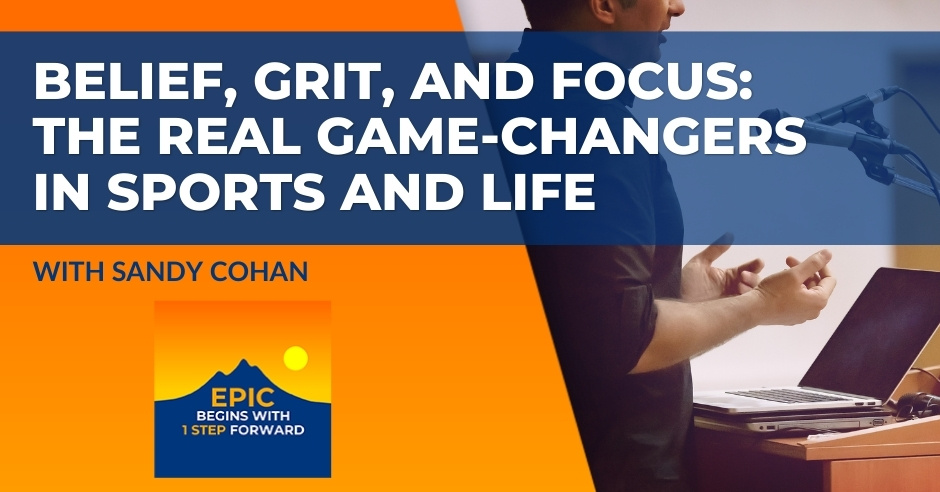In this motivating episode of EPIC Begins With One Step Forward, Zander Sprague talks with Coach Sandy Cohan, a former hockey player turned mindset development coach and author. After years of coaching elite athletes – from Olympians to college players – Sandy discovered that skill alone does not separate the good from the great. The real difference? Mindset. Together, they explore the power of belief, grit, emotional control, and focus as the true foundations of performance. Sandy shares insights from his bestselling books 99 Rules Every Athlete Needs to Know and 99 Rules Every Sports Parent Needs to Know, while also tackling the myths around confidence, failure, and growth. Whether you are an athlete, a parent, or just someone looking to level up in life, this conversation is packed with epic, actionable wisdom.
Apply to be a Guest on My TV show
#EPICBeginswith1StepForward, #ZanderSprague, #MentalPerformance, #SelfAffirmation, #ShowingUp
—
Watch the episode here
Listen to the podcast here
Belief, Grit, And Focus: The Real Game-Changers In Sports And Life With Sandy Cohan
Sandy’s Journey From Hockey To Mindset Development
I am so honored to be joined by Coach Sandy. Coach, tell us who you are and what you do.
Yeah. First off, thanks so much again for the opportunity. I am a Mindset Development Coach. I spent the majority of my life in hockey. After my playing career was over, I transitioned into the skills coaching part. I spent many years coaching professional hockey players, college Olympians, really on the skillset side. I didn’t coach teams or anything like that.
Hockey’s been a part of my life forever. I transitioned exclusively into the mindset space and work with athletes all ages, all levels really on mental preparation. When I say mindset, I’m talking belief, attitude, grit, focus, emotional control, discipline, self-awareness. I have written a couple of books. I never thought I would be saying that but I just love it. I interact with a lot of speaking engagements. I’m really loving that part. I’m just trying to impact as many people as I can on the thought process of performance, primarily on the concept of focus. That’s really where I spend most of my time.
I want to jump into all the different parts of this. Let’s start off with you. Obviously, you played hockey growing up. You said that when your hockey career was over, did you play in college? Did you go on to play professionally?
Yeah. I went to prep school on the East Coast in Rhode Island. Not too far away from where you’re from?
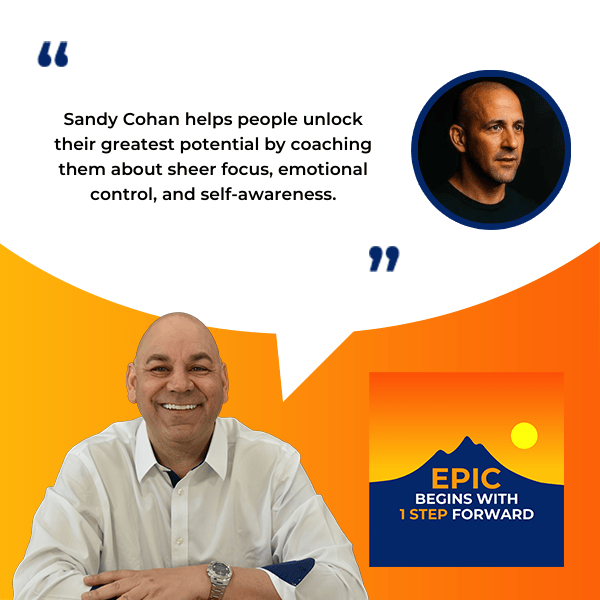
Which one?
St. George’s. A really rough upbringing there at that facility. No, but I loved every second of it. Yes, I ended up playing in college. I went to school out in Ohio. When that was finished, I played in Europe for a couple of years and the dream was over. I love the sport and just a part of it for so many years of my life. When that was finished, I got into coaching, like I said, and just loved that. I didn’t know this about myself, but I think I’m probably like a teacher by trade, maybe trapped in a hockey person’s body for so long.
It’s been so rewarding. Probably even more rewarding than my playing career, just to try and help so many people maximize their potential. That really is where my focus is. When I say making it, I almost don’t care what the dream is. I just want people to maximize their potential. For me, sports hockey exclusively was probably the vehicle for so long, but I think now I’d probably say I’m more in the help build great human being business. It sounds like you’re in the same, so it’s so rewarding.
I would say, I, too, feel that perhaps one of my vocations is to teach people. I spent seventeen years in a corporate career, doing technical instruction. I taught people how to use software and stuff. I seem to have a knack for understanding technology and putting it into terms and getting people to learn. I’ve been trying to teach my mom for, for 30 years how to use her computer, and she’s okay, but not great. I’d like to say I taught my mom how to use everything, but I swear, even though for 30 years, I’m still like, “Alright, mom, click on the attachment.”
Not to bash our parents, but I was going through that, and I got a phone call from my dad. You’re laughing already. I pick up the phone and he’s like, “What’d you need? I saw that you sent me a text message.” I said, “I sent that two weeks ago.” That’s part of the deal. That generation didn’t have all the technology and I get bogged up by it too.
Improving The Mental Performance Of Hockey Players
I’m interested in your career as a coach. I played hockey growing up, and lots of skills that you have to do all at once to be successful, obviously, skating being the first one. You’ve got to be good at skating, but then there’s puck handling and positioning and how to do heads up play and stuff. For you, when you were doing more of that, what aspects did you really like to help hone in for players to up their game, be better, be more competent?
Early on, when I started, it was a lot of pro or college players. It was fine-tuning. It’s all the same things that you just mentioned. Those things never go away. I think presentation is a little bit different with the older athletes. It’s a little bit more about accountability within tasks and awareness. For the younger folks, it’s a little bit more about what the message is.
I was mainly a skills coach, so it was very targeted, smaller groups. I think that’s probably what led me to getting where I am now because I felt like I was making a difference. I felt like I could honestly say my only interests are the best interests of the person or people in front of me. I don’t care what team you play for next year.
That really transitioned into other aspects of the sport. What I started noticing was even players who had been drafted, you can take the hockey component out of it, I saw elite performers who weren’t maximizing their potential. At that elite level, it wasn’t really a skill difference. It was such a fine line. Everybody had a skill. What was the separator? The separator was what was going on inside the helmet. What was the mindset or what wasn’t the mindset? Very rarely was it the ones who were the most skilled on the ice or in a situation that really continued to level up.
It was the grittier ones or the ones who could really manage their focus, control their emotions. Of course, skills matter. Mindset is the foundation. I always use that word, mindset. The concept of mental performance, anytime someone says mental performance, this is my opinion, the assumption is that there’s something wrong. I don’t work with broken people. It was a different time when you and I were younger and certainly no one wanted to go talk to the mental person. I say mindset.
I do agree, Sandy, that oftentimes the difference between someone at that elite level success, as you said, honestly, the difference in skills is so minuscule. They haven’t made it to that elite level because they couldn’t skate. That’s not the point. The point is the mental game. What is the conversation in your head? I talk to my clients all the time. I call the committee in our brain. Frankly, the meanest person in each of our lives, sadly, is ourselves. The things that we say are so negative.
Be Your Biggest Fan And Critic
I tell players this all the time, and it’s transitioned into either business executives that I work with, or CEO or whoever it is. What you just said is so true. The positive self-talk is so important. Perception of self really determines how you position yourself within fill in the blank of the environment. I always tell people like, “If you wouldn’t say it to someone else, you can’t say it to yourself.”
Positive self-talk is important in the perception of self. It determines how you position yourself within a certain environment.
In the sports world, if you miss a shot, “You’re an idiot. That’s the worst shot ever.” We’ve all done it. It’s like if you wouldn’t say it to somebody else, you wouldn’t get off the ice or off the field or whatever, and look over to a teammate and say, “That was the worst play I’ve ever seen. You’re the worst one out here.” It’s like, if you wouldn’t say it to them, you can’t say it to yourself.
It’s not how the brain operates. That’s a big challenge. It’s a challenge with the younger players that I work with, pros, professionals. I battle that sometimes in my personal life. It’s normal. As you said, our biggest critic is ourselves. I’m okay with that to a lot of people. I remind them that it’s okay to be your own biggest critic, but there’s a comma there, but you also have to be your biggest fan.
I always laugh. You’ll get the reference. There may be younger people reading who don’t, but you might remember on Saturday Night Live, they had Stuart Smalley. As funny as that is, those self-affirmations, as I’ve gotten older, that was an even more brilliant commentary that we have to say, “I am good enough. I like myself.”
You don’t have to do it in front of the mirror like he did. You do have to say it.
It’s funny because as I’m doing the work and stuff with helping people step into their epic, first of all, none of us can be successful if we don’t believe that we can do it.
You’ll like this. I heard this. I say it all the time, but I didn’t come up with this. I can’t even remember where I heard it. Maybe it was a coach or somebody said it to me, but this particular person always mentioned that word, belief. To younger people or even older, that it sometimes gets confused with confidence. I think those are two totally different things, but everybody is always saying, “I want to be confident.” Confidence is really the symptom of belief.
This person explained it to me this way. I’ve never forgotten this. They said, “If you think about a tree outside. What you see above ground, that’s confidence. What you don’t see below ground, that’s belief.” In that example, no roots, no tree. No belief, no confidence. A lot of the work that I do is really tapping into belief whereby the end result of it is feeling confident. I love that you said that, because I think that word is so important.
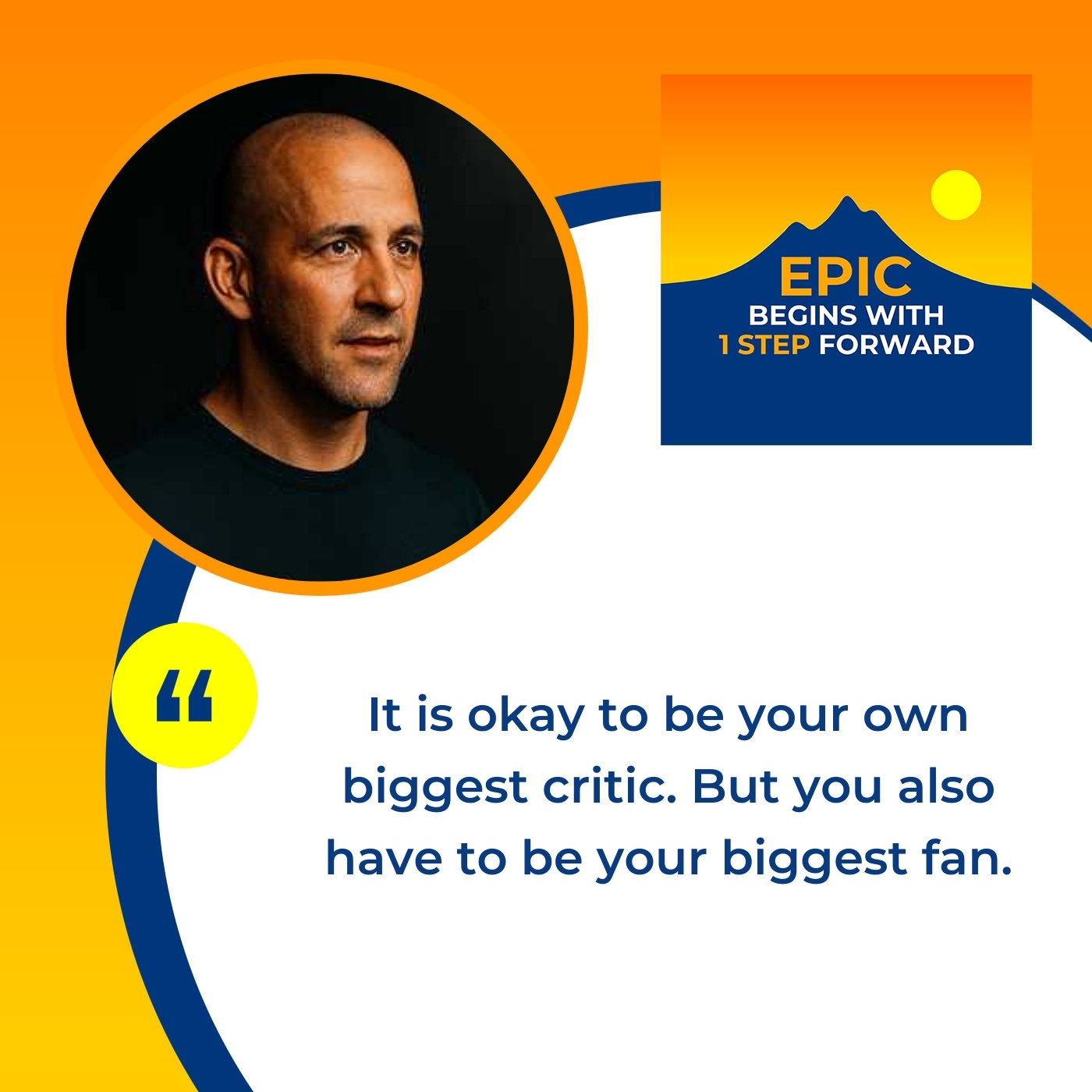
I look at my own life and say some of the things that I’ve accomplished, you said in your intro that you’ve written two books, and that blows your mind. It completely blows my mind. If you’d asked me in college whether I’d write a book, I’d be like, “Heck, no. I hate writing.” I really don’t. I’m a talker or not a typer, but I had important things I wanted to share. I figured out that there isn’t just one way to write a book. I can get it down, then I have something to work with.
Some of the other stuff I’ve achieved, even though it was really hard, I used to run half marathons and marathons, it was awesome. I can assure you there were many miles in training and running the race, where it was really hard. I certainly remember from when I was playing hockey, when a game wasn’t going well, and you’re in the third period and you are so tired. You’re like, “I’ve got to go out and do my shift. I got to do my part to help the team,” and you do it, believing that you can, even though you’re tired, “I can do this.” I’m going to sound like an old man for a second here, Sandy.
Older.
Perhaps wise, experienced, whatever. You may experience this in working with some of the younger players. So much of the personal validation is coming from external sources, not people. Posts, texts all of this technology. People said negative things about my play. Yeah, people do. The difference is in when you and I were growing up, people might say it in the stand about your play, but you never heard it, so it didn’t matter.
It’s just a different time. It’s not right or wrong, it’s just different. What I’ve noticed, younger people now, probably on a skill spectrum, they’re bigger, they’re faster, they’re stronger probably than we were when we were younger. Their concept of success or lack of understanding what success means, handling adversity, not running from adversity, being able to just hang in there and persevere. They’re like level of grit. It’s not their fault. That’s different in the younger generations.
I think a lot of it can be taught. That’s why I love what I do because trying to impact younger people, whatever, fill in the blank again, hockey, whatever it is, belief matters. Focus matters. Grit matters. Emotional control matters. Discipline matters. Self-awareness. They’re all the same things. Those really are the foundational aspects of life. It’s easy for us to say that because we’ve probably messed up more times than they’ve succeeded, even. Understanding that fear doesn’t mean stop. Fear means go. It’s always about get back up. All you’ve got to do is just get back up. Where’s the focus? What’s important now? Just keep moving.
How To Become A Good Team Player
I’m a few years older than you, but we grew up with the same experiences. As a licensed mental health professional, I have clients who are much younger than me, and I’m like, “I’ve got to understand where they’re coming from.” There are things I love, like the social media videos that talk about Gen X. They’re funny because I’m like, “That is so true.” The message that came on at 10:00 at night saying to parents, “Do you know where your kids are?” It was not a scare tactic. More of a reminder that you have children and it’s 10:00. Do you know where they are?
Whereas nowadays, it’d be like, “Where are my kids? Where’s our parents? Where’s Sandy? I haven’t seen them all day.” Now, there are so many athletes who are so single-sport focused. Everything they do is play hockey. They play in the summer. They’re playing year-round, whereas when I grew up, I was playing soccer, hockey and lacrosse. I was playing baseball with my friends. I was doing a variety of different sports. I had different experiences. I didn’t get a medal just for playing.
I think it’s very important to learn how to win. I think winning matters.
It feels good.
I think you have to learn how to win. Also, how to lose. My personal opinion is that showing up certainly matters. I think living a life of getting everything you can out of it, whatever the thing is, requires a certain tenacity that is okay. It’s good. It’s healthy. It creates great habits. It creates a well-rounded person. I think it’s very healthy. You mentioned something earlier. I think in my world, where I spend most of my time, being a good athlete is the most important.
Being a good athlete is important. It is easy to be a good player, but you must also learn how to be a supporting member in your team.
It’s easy to make a good hockey player, a good lacrosse player, a good soccer player, but I think it has to come from that place of being an athlete. Do other things, play other sports. Maybe you’re the star on one team, and you have to learn how to be a supporting member on the other team. It’s not just like the physical benefits. I think being in those different situations is very healthy. That is how it was even when I was younger. We were doing multiple things.
I talk about it in my book, that failure is part of the journey. We are not going to be successful all the time. There are absolutely people who are just crazy talented. Hopefully, those people have the experience of not always being the absolute best. Frankly, losing some, because I think if all you do is have success all the time, you have no idea and no appreciation for what it did. Frankly, I played lots of sports, but I was not a top athlete. For me, it was getting to participate. I get to be part of this team. I get to contribute. Maybe my contribution isn’t enormous. It isn’t the game-winning goal, but I’m still part of the team.
You get to compete.
Even if I were the last person on the whole team, I’m still a member of that team. I still got to play on that team. I think that’s important. We see those players who are really good at whatever sport. The ones that we really admire are usually the ones who have learned that although they’re crazy talented, they can’t do it alone.
My two books are out. The first book I wrote is 99 Rules Every Athlete Needs to Know. They’re quick one-hitters. Quite frankly, it’s probably the type of book I would’ve wanted to have read when I was younger. I wasn’t a big reader either, but you can open up to any page. There are some nuggets in there. You can take it with you, toss it in your bag. I really wrote it for that reason of what you were just talking about. There are lots of reminders about all those subjects.
I got a good response. I was very happy about that, proud of that. I started hearing a lot from parents like, “How can we help better support our kids? How can we help with the confidence? What should we be saying on the ride to practice? What should we not be saying on ride home?” I wrote a second book was 99 Rules Every Sports Parent Needs to Know.
That one has outsold the athlete book. It’s in that same vein. Everyone’s trying to do the best they can. Nobody has all the answers, but the experiences learned along the way raises everybody up when people have more information and more knowledge. It really helps create a lot of the principles that you were just talking about.
Showing up is, of course, important. Getting up, that’s what matters. It’s not about the fall down. If you aren’t falling down, quite honestly, you’re probably not stretching yourself enough. Comfort zones, that’s where dreams go to die. The magic happens in the growth zones, and sometimes athletes need to know that, and parents need to be reminded of it that it’s okay if they fall down. You don’t have to prevent them from falling down all the time. Help them get back up.
Falling is part of the growth process. If you are not falling, you are probably not stretching yourself enough.
I don’t know about your childhood, but my best friend my whole entire life, honestly, all the time, we marvel at the fact that we are actually here because of some of the crazy stuff.
That’s a different episode.
Achieving Growth After Falling Down
That whole idea, like the stuff that I did as a kid, and I have two daughters, and I wasn’t riding around with a helmet on or whatever. I fell down a lot.
Honestly, I think even adults need to hear it need to remember it. That is what life is. There’s no judgment for that. It’s getting back in the fight, staying focused, what’s the goal and continuing to move forward. It sounds like that’s a lot of the basis of what you do. My mom was in the mental health business for 40-plus years. She was a therapist. I was surrounded by a lot of that type of thinking growing up, very fortunate. Resiliency. It doesn’t mean that what happened in the past, you forget about it, but survival. It’s finding a way through. I think that’s such an important skill.
When I’m working with some of my clients and their getting down on themself about not being successful or failing at something, I try and remind them that in baseball, people make it into the Hall of Fame if they have a lifetime batting average of over 300. I’m not taking anything away from that, but I try and help put it in perspective and say, “That means that they were successful 1 out of every 3 times they went to bat.” Imagine you have nine hours of doing work and your life or whatever, and for you to have a Hall of Fame day, you only have to get three hours right. You can totally mess up six hours. You get a Hall of Fame day.
I’ll give you an even crazier one. Same concept. I would talk about this a lot with my clients who want to score more goals. I use another sports analogy. I’m a Caps fan. Alex Ovechkin. Love him or hate him, he’s the greatest goal scorer of all time. Up until a couple of years ago, he would lead the league every year in two categories. One would be goals, the other one would be shots.
Once you do all the math, it really seemed like he was really scoring goals at a 10% clip. Ten percent of the shots were goals. Now, if you look at the goals, it’s a hall of fame season. People talk about the 50 goals. No one talks about that’s only 10%, and nobody talks about what you were just referring to is that he doesn’t score 90% of the time he shoots. He just shoots so much that that’s the exact same analogy that you were just saying.
For any of us, whatever epic journey we’re on, understand that failure is part of this journey. You’re not going to be successful at everything. I laugh all the time as an entrepreneur that I’ve been quite generous in buying new tools to help me do whatever, be more productive, better customer resource management, all of that. It’s not that they’re bad tools, they’re just not the right tool for me. When I was running, when I first started to do distance running, I was trying out different shoes. It’s not that Brooks makes a bad shoe, I just happen to like New Balance because they fit my foot better, they were more comfortable.
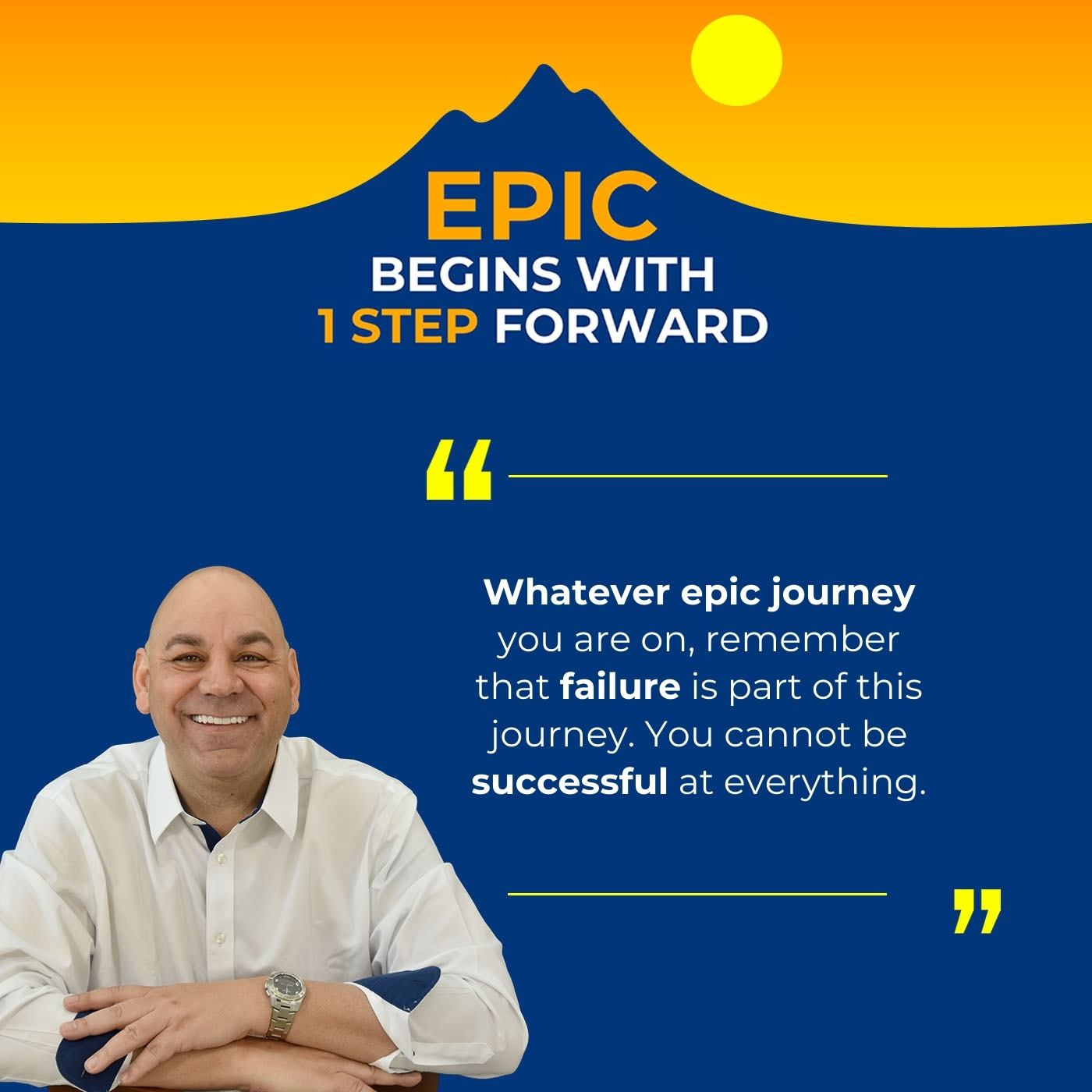
The way you came to that decision was trying this, didn’t work. Are you going to pack it in and not run it? You keep trying the different options.
Get In Touch With Sandy
People have hockey sticks and they have the ones that they like. A hockey stick is a hockey stick. It does the same thing. Golf clubs, whatever. I love golf, but a golf club isn’t going to fundamentally change my game, but there may be a club that’s just a better fit for me that allows me to hit better. Sandy, fascinating conversation. Clearly, you and I could talk for hours.
Thank you. Keep and keep doing great stuff. Honestly, I listen to your stuff. Anytime you use the word epic, I think it’s a worthy endeavor. Congrats to your success.
Thank you. How can people find your book and get a hold of you?
My website is SandyCohan.com. They’ll be able to get the books there. There’ll be a third book out. I would love to chat with anybody about anything having to do with mindset. I appreciate the opportunity.
Thank you so much for joining me. I want to remind everyone that if you’re ready to begin your epic journey, go to EpicBegins.com. As always, remember that epic choices lead to the epic life that you want.
Important Links
About Sandy Cohan
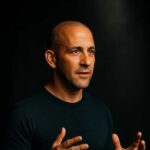 Today’s guest is Sandy Cohan—former athlete turned professional mindset coach, speaker, and two-time author of the ‘99 Rules’ series.
Today’s guest is Sandy Cohan—former athlete turned professional mindset coach, speaker, and two-time author of the ‘99 Rules’ series.
He works with athletes, parents, coaches, and entire sports organizations to build unshakable confidence, grit, and focus under pressure.
Sandy coaches at every level—from youth to pro to Olympic—helping athletes perform at their best both in and out of competition.
His energetic, no-fluff approach delivers real results, and today he’s here to share the mental edge with us.

